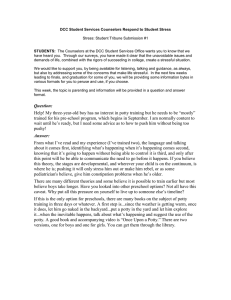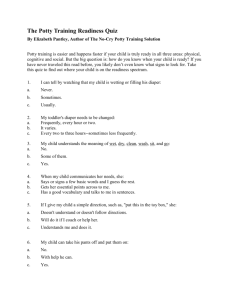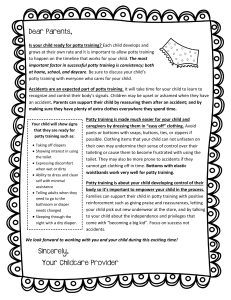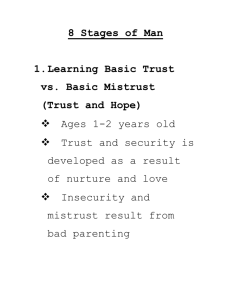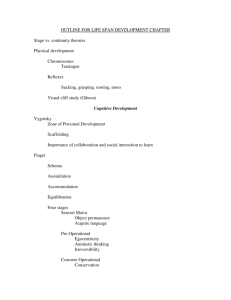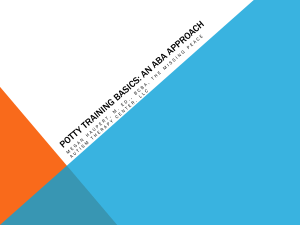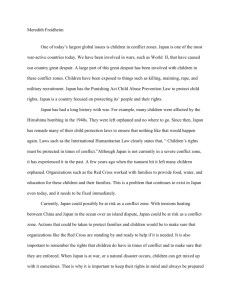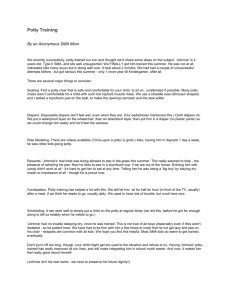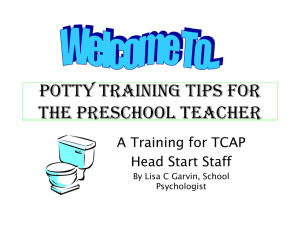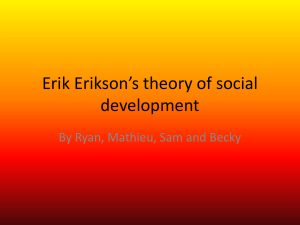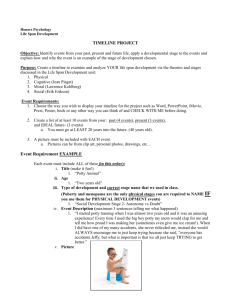File eriksen 2010
advertisement
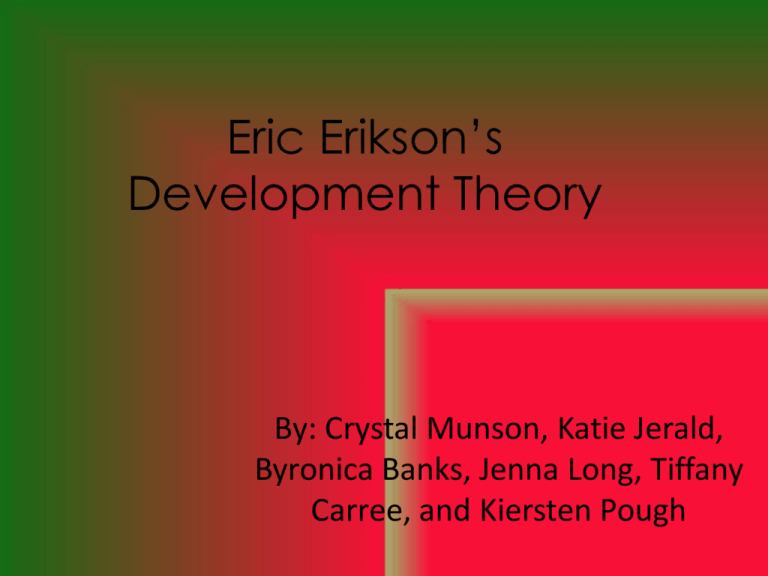
Eric Erikson’s Development Theory By: Crystal Munson, Katie Jerald, Byronica Banks, Jenna Long, Tiffany Carree, and Kiersten Pough Stage 1 Infancy (0 to 1 ½ years) Trust vs. Mistrust ►Completely dependent on others ►Is either trustful or mistrustful in situations Stage 2 Early Childhood (1 ½ to 3 years) Autonomy vs. Shame and Doubt ►Strive to control body ►Either proud (when potty training), or shameful (not being able to potty train yet) Stage 3 Play Age (3 to 5 years) Initiative vs. Guilt ►Extremely curious and asks a lot of questions ►Either praised for asking questions, or told to be silent Stage 4 Elementary School Age (5 to 12 years) Industry vs. Inferiority ►Obtaining knowledge and skills ►Will either feel proud when learning to read, write, do math, etc. or really inferior when belonging in the low category and getting low grades Stage 5 Adolescence (12 to 18 years) Identity and Reputation vs. Identity Confusion ►Most important stage in life ►Determines who he/she is, what he/she wants from life, or experiences identity crisis Stage 6 Young Adult (18 to 25 years) Intimacy and Solidarity vs. Isolation ►Has figured out who he/she is ►Ready to share himself/herself with another person ►Is either ready to have a relationship and family or is isolated and not connected to society Stage 7 Adulthood (25 to 65 years) Generativity vs. SelfAbsorption ►Will either be productive and contribute to society or will become selfabsorbed and negative Stage 8 Older Adult (65+ years) Integrity vs. Despair ►On the “other end of life” ►Either feel a sense of accomplishment in life or despair and regret for the things done or not done in life
